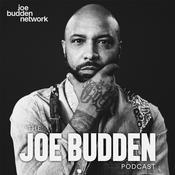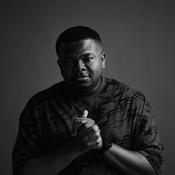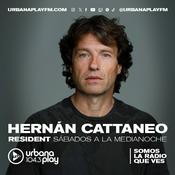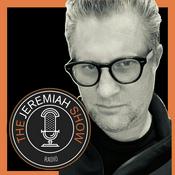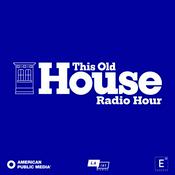223 episodes
- Synopsis
Happy Saint Valentine’s Day!
On today's date in 1953, a new choral work by German composer Carl Orff received its premiere performance at the La Scala opera house in Milan, Italy. Trionfo di Afrodite was the title of the new work, intended to be the final panel in a triptych of choral works celebrating life and love. This triptych included Orff’s famous Carmina Burana, based on medieval texts, and Catulli Carmina, based on love lyrics by Roman poet Catullus.
All three pieces were given lavish, semi-staged performances at La Scala, led by the Austrian maestro Herbert von Karajan, and with German soprano Elisabeth Schwarzkopf and Swedish tenor Nicolai Gedda as the star soloists. For the world premiere performance of Trionfo di Afrodite, Schwarzkopf and Gedda portrayed a bride and groom on their wedding night: the texts they sang were pretty hot stuff — if you understand Latin, that is!
Triofi di Afrodite shows Orff’s indebtedness to Stravinsky, and his repetitive rhythmic patterns seem to anticipate the minimalist movement by several decades. At the 1953 premiere, Schwarzkopf’s husband, record producer Walter Legge, gently suggested to Orff that he might consider a few cuts to the new work. His response? “Oh, I know very well the effect of my rubber-stamp music!”
In any case, Legge decided not to make a recording of the new work — which seems a shame, considering the all-star cast assembled at La Scala for its premiere!
Music Played in Today's Program
Carl Orff (1985-1982): Trionfo di Aphrodite - Synopsis
Today’s date in 1910 marks the birthday in Paris of a French composer you perhaps have never heard of, but Elsa Barraine is well-deserving of your attention.
Barraine’s father was a cellist at the Paris Opera, and as a teen she attended the Paris Conservatory, studying composition with Paul Dukas. Olivier Messiaen was her classmate and remained a lifelong friend. She won several prizes for her compositions, including the prestigious Prix de Rome in 1929 when she was just 19.
Barraine worked at the French National Radio from 1936 to 1940. During World War II, she was heavily involved in the French Resistance, and from 1944 to 1947 was the Recording Director of the French record label Le Chant du Monde. In 1953 she joined the faculty at the Paris Conservatoire, where she taught until 1972, the year the French Ministry of Culture named her Director of Music. She died in 1999.
Barraine’s catalog of works includes a variety of vocal and instrumental works, an opera, ballets, and two symphonies, but her music is seldom performed today. We’re sampling one of her chamber works, a piece for French horn and piano, Crépuscules, or Twilights.
Music Played in Today's Program
Elsa Barraine (1910-1999): Crépuscules; Lin Foulk Baird, French Horn; Martha Fischer, piano; Centaur CRC-3857 - Synopsis
On today’s date in the year 1900, the principal of Stanton Elementary in Jacksonville, Florida was asked to give a Lincoln’s Day speech to his students. Stanton was a segregated school for African-American children, and was the school that its principal, James Weldon Johnson, had attended. He decided he would rather have the students do something themselves, perhaps sing an inspirational song. He decided to write the words himself, and enlisted the aid of his brother, John Rosamond Johnson, who was a composer.
“We planned to have it sung by schoolchildren, a chorus of 500 voices. I got my first line, ‘Lift Ev’ry Voice and Sing’ — not a startling first line, but I worked along, grinding out the rest,” Johnson recalled. He gave the words to his brother as they came to him, not even writing them down as his brother worked at the piano. By the time they finished, he confessed he was moved by what they had created: “I could not keep back the tears and made no effort to do so.”
The song was a great success on February 12th, 1900, and then was pretty much forgotten by Johnson — but not by the children who sang it. They memorized it. Some of them became teachers, and taught it to their students. The song spread across the country, and soon became the unofficial National Anthem of Black America.
“We wrote better than we knew,” he said.
Music Played in Today's Program
J.W. (1871-1938) and J.R. (1873-1954) Johnson: “Lift Ev’ry Voice and Sing”; Choirs and Boston Pops Orchestra; Keith Lockhart, conductor; BMG/RCA 63888 - Synopsis
If the bassoon is rather unkindly known as the “clown” of the orchestra, what does that make the poor tuba?
Just say “tuba” to someone, and they turn into a mime — at least that was the experience of American composer Alex Shapiro when she mentioned that she was writing a new work for tuba and piano.
“The response was usually one of surprised and barely muffled laughter. The exclamation ‘Tuba, eh? What a funny instrument!’ was often accompanied by exaggerated hand and mouth gestures that somewhat resembled a trout attempting to inflate a balloon,” she said.
Shapiro wanted to show how nimble and lyrical a tuba could be. She gave her finished piece — for tuba and piano — a punning title: Music for Two Big Instruments.
The new work was commissioned by Norman Pearson, principal tubist of the Los Angeles Philharmonic, who premiered the work with wife, pianist Cynthia Bauhof-Williams, on today’s date in 2001 at Alfred Newman Hall on the campus of University of Southern California in Los Angeles.
Grateful tubists have taken up Shapiro’s piece since then, and this West Coast commission’s first recording was made by New York Philharmonic principal tubist Alan Baer, so one could say — with a bit of a stretch — Music for Two Big Instruments has been a coast to coast success!
Music Played in Today's Program
Alex Shapiro (b. 1962): Music for Two Big Instruments; Alan Baer, tuba; Bradley Haag, piano; innova 683 - Synopsis
On today’s date in 1934, the audience at the Metropolitan Opera in New York City demanded — and got — 50 curtain calls for the cast and conductor of the new opera that had just received its premiere staged performance.
The opera was Merry Mount, based on a Nathaniel Hawthorne short story set in a Puritan colony in 17th-century New England. The music was by American composer Howard Hanson. The performers for Met Opera’s premiere included great American baritone Lawrence Tibbett as the Puritan preacher Wrestling Bradford, sorely tempted by the Swedish soprano Gösta Ljungberg in the role of Lady Marigold Sandys, his unwilling leading lady.
Despite its setting in Puritan New England, the opera included plenty of the lurid sex and violence that fuels the all the best Romantic opera plots, and the score was in Hanson’s most winning Neo-Romantic style, with rich choral and orchestral writing, capped by a fiery conflagration as a grand finale. What more could an opera audience want?
Strangely enough, despite its tremendous first-night success, Merry Mount has seldom — if ever — been staged since 1934. To celebrate the centenary of Hanson’s birth in 1996, the Seattle Symphony presented Merry Mount in a concert performance conducted by Gerard Schwarz.
Music Played in Today's Program
Howard Hanson (1896-1981): Merry Mount Suite; Seattle Symphony; Gerard Schwarz, conductor; Delos 3105
More Music podcasts
Trending Music podcasts
About Composers Datebook
Composers Datebook™ is a daily two-minute program designed to inform, engage, and entertain listeners with timely information about composers of the past and present. Each program notes significant or intriguing musical events involving composers of the past and present, with appropriate and accessible music related to each.
Podcast websiteListen to Composers Datebook, Takin’ A Walk Nashville and many other podcasts from around the world with the radio.net app

Get the free radio.net app
- Stations and podcasts to bookmark
- Stream via Wi-Fi or Bluetooth
- Supports Carplay & Android Auto
- Many other app features
Get the free radio.net app
- Stations and podcasts to bookmark
- Stream via Wi-Fi or Bluetooth
- Supports Carplay & Android Auto
- Many other app features


Composers Datebook
Scan code,
download the app,
start listening.
download the app,
start listening.








